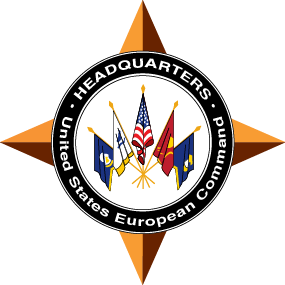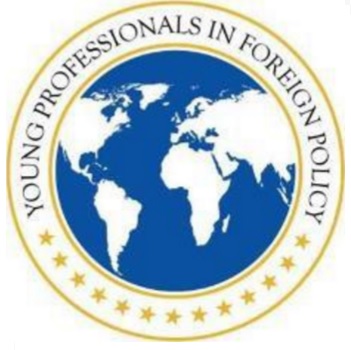
Summary
The European Union is fast becoming a more serious global player on security and defence issues, but there is still an “enormous” amount to do as it wrestles with old and new challenges, including responding to technological change and threats from terrorism, cybercrime and disinformation.
That was the view of European Commissioner for the Security Union Julian King, who opened a gathering of experts at Friends of Europe’s annual Policy Security Summit in Brussels on 20 September.
Under the banner ‘A Brave New World: adapting to a changing security landscape’, wide-ranging discussions on the most pressing issues of the day included the potential benefits of increasing EU strategic autonomy; Brexit’s impact on the state of play; ethical questions around unmanned weaponry; and Europe’s position in the ‘arms race’ for use of robotics and artificial intelligence.
The question is “Is Europe upping its game? And if not, how can we catch up?” said Jamie Shea, Friends of Europe’s Senior Fellow and NATO’s outgoing Deputy Assistant Secretary General for Emerging Security Challenges.
Can we even consider ‘Europe’ as an entity when we talk about defence, asked Lowri Evans, European Commission Director-General for Internal Market, Industry, Entrepreneurship and SMEs. With members states’ defence industries all organised differently there is too much “duplication of resources, and mas-sively inefficient investment” which needs to be resolved with better collaboration at the development stage, she said.
Meanwhile Europe is “sitting back” on the issue of fully autonomous weapons, said Mary Wareham, Global Coordinator of the Campaign to Stop Killer Robots. During a candid debate on the development of unmanned weaponry, she said their campaign to preemptively ban such weapons was gaining traction but questioned why Europe remained undecided. Amid multiple issues “what binds us together is this moral question of how you should be killed on the battlefield – by another soldier… or by a machine?” she said.
For NATO’s part, panel members were asked what it needs to do to modernise, face new challenges and work with the EU towards common goals.
Portuguese Defence Minister José Alberto de Azeredo Lopes, who has previously called for a new Strategic Concept for NATO, said while considering new security challenges “we have lost the capacity of thinking that NATO should be, or could be, hard power.”
When asked if an upcoming NATO military exercise in Norway – the alliance’s largest in decades – was “fighting yesterday’s conflict”, Norwegian Minister of Defence Frank Bakke-Jensen said: “No, we are pre-paring for peace.”
The event also featured roundtable discussions on some of Europe’s biggest foreign policy challenges, with sessions on Syria, Libya, North Korea, Ukraine and Yemen.
The programme was devised as a response to recommendations resulting from Friends of Europe’s re-cent global online brainstorm, Debating Security Plus, the conclusions of which were shared with delegates.
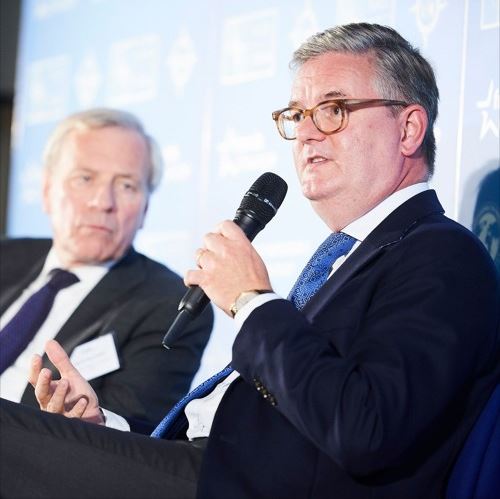
Event recording
Security Summit 2018 - Conversation with Julian King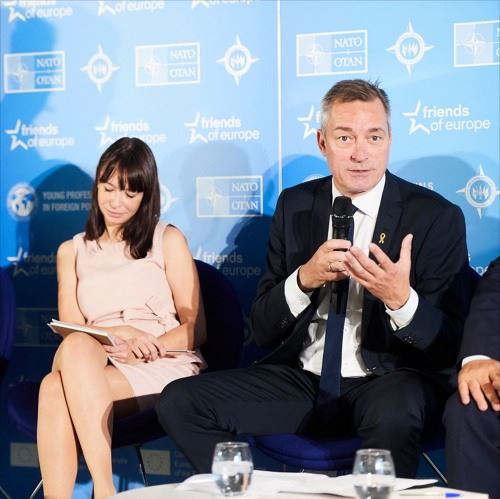
Event recording
Security Summit 2018 - Session I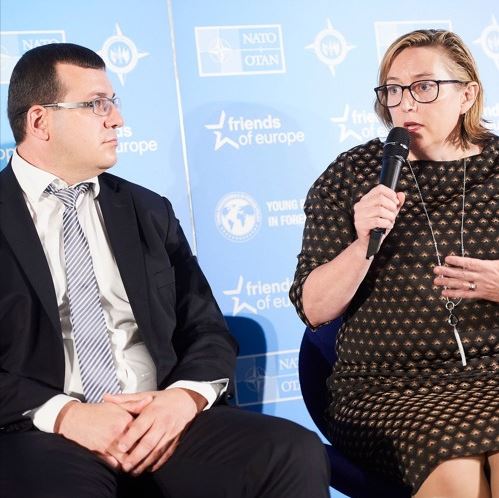
Event recording
Security Summit 2018 - Session IIAbout
Friends of Europe’s annual Policy Security Summit is the flagship event of our ambitious peace, security & defence programme. Bringing together senior decision-makers with out-of-the-box movers and shakers, this occasion allows for in-depth and innovative discussions on today’s most pressing security and defence issues.
Taking place right after the 2018 NATO Summit and ahead of the 70th anniversary of NATO, this year’s summit is particularly timely to launch and promote new visionary ideas on the future of NATO, European defence and security, and current security developments shaking our world.
The summit will present and discuss the recommendations of our Debating Security Plus (DS+) online brainstorm that took place on 19-20 June. Gathering a unique coalition of over a thousand participants from around the world, it is the only platform that permits a truly global whole-of-society consultation providing fresh and innovative recommendations to global security challenges.
The conference will also allow participants to take part in early bird-masterclasses to learn more about key conflicts and crises from high-level experts, including Elham Saudi, Director of Lawyers for Justice in Libya; Iryna Brunova-Kalisetska, Executive Director of the Integration and Development Center for Information and Research, Ukraine; and Zaina Erhaim, award-winning Syrian journalist. It is a unique opportunity to look at some of Europe’s biggest foreign policy challenges with a select group of stakeholders and seek to learn both from conflicts and crises and their resolution.
Schedule
NEW APPROACHES FOR EUROPE’S GLOBAL ROLE
During Friends of Europe’s recent global online brainstorm, Debating Security Plus, there were repeated calls for Europe to speed up its steps towards strategic autonomy, strengthening a common EU strategic approach to foreign, defence and security policy. Continuing conflicts in its eastern and southern neighbourhood – and beyond – are challenging Europe’s capacity to act collectively to shape global events. Will new security and defence capabilities currently being developed allow the EU to respond more effectively to external conflicts and crises and play a greater role in fostering peace? To the South, what can be done to stop the agenda being dominated by migration and security concerns and foster a longer-term approach to stability, security and prosperity in the region? To the East, should the EU play a bigger role in conflict resolution processes in the numerous ‘frozen conflicts’ of the post-Soviet space, including in Georgia, Ukraine and Moldova? Further afield, can the European Union assist in the peace process and denuclearisation of the Korean Peninsula?
This set of parallel masterclasses will look at some of Europe’s biggest foreign policy challenges, seeking to learn both from conflicts and crises and their resolution.
Welcome remarks
Jamie Shea
Senior Fellow for Peace, Security and Defence at Friends of Europe, and former Deputy Assistant Secretary General for Emerging Security Challenges at the North Atlantic Treaty Organization (NATO)
Table 1 - Syria
Zaina Erhaim
Award-winning Syrian journalist
Table 2 - Libya
Elham Saudi
Director of Lawyers for Justice in Libya
Table 3 - North Korea
Youngmi Kim
Senior Lecturer in Korean Studies at the University of Edinburgh
Table 4 - Ukraine
Iryna Brunova-Kalisetska
Executive Director of the Integration and Development Center for Information and Research, Ukraine
Table 5 - Yemen
Helen Lackner
Research Associate at the London Middle East Institute and author of “Yemen in crisis: Autocracy, neo-liberalism and the disintegration of a state”
The European Union is wrestling with an array of old and new security challenges as it seeks to tackle rapid technological developments from Artificial Intelligence to robotics which are changing the global military and security landscape and the nature of warfare. New EU moves to develop defence capabilities, including the Coordinated Annual Review on Defence (CARD), the Permanent Structured Cooperation (PESCO) and the European Defence Fund (EDF) are central pieces of a new political and institutional jigsaw puzzle which has the potential to provide EU nations with better and more interoperable defense capabilities to address a multiplicity of threats.
- The international community has raised concerns over the lack of human control in modern warfare. Where do we draw the line on autonomy and warfare?
- Are the new European security and defence capabilities, along with revamped NATO structures, adapted to the different security threats we face?
- Has Europe already lost the ‘arms race’ for the use of artificial intelligence (AI) and robotics for defence applications?
- Would an international code of conduct or international agreement based on those developed on nuclear or chemical weapons, as advocated during the DS+ online brainstorm, help regulate the military use of AI and mitigate its disruptive effects?
Speakers
Lowri Evans
European Commission Director-General for Internal Market, Industry, Entrepreneurship and SMEs
Edvinas Kerza
Lithuanian Vice-Minister of Defence
Frank Sauer
Senior Research Fellow and Lecturer at Bundeswehr University Munich
Mary Wareham
Global Coordinator of the Campaign to Stop Killer Robots
Moderator
Jamie Shea
Senior Fellow for Peace, Security and Defence at Friends of Europe, and former Deputy Assistant Secretary General for Emerging Security Challenges at the North Atlantic Treaty Organization (NATO)
NATO unity is being tested by US President Donald Trump’s stepped-up demands for an increase in European defence spending and his apparent preference for bilateral security arrangements over joint Alliance operations. The Debating Security Plus online brainstorm argued that European nations need to boost defence spending at least to the NATO target of 2% of GDP but should keep in mind that spending more is not enough; how they spend their defence budgets is key. As highlighted by the NATO summit in July, the Alliance also continues to juggle its long-standing commitments to theatres like Afghanistan, increased tensions with Russia and counter-terrorism efforts with new and increasingly sophisticated threats posed by hybrid warfare as well as cyber-attacks which threaten to disrupt crucial infrastructure, businesses, and privacy. As it nears its 70th anniversary, NATO is under pressure to transform an old Alliance into a more modern and efficient organisation ready to take up new challenges in a fast-changing security landscape.
- What changes does NATO need to embrace to be able to meet the security and defence challenges of the 21st century, including relations with China?
- How does NATO see European efforts to build closer defence cooperation, and what can be done to make sure NATO and EU efforts reinforce each other?
- How should EU member states and NATO allies adapt to the threat of a less internationally engaged US?
Speakers
Jose Alberto de Azeredo Lopes
Portuguese Minister of Defence
Frank Bakke-Jensen
Norwegian Minister of Defence
Jaap de Hoop Scheffer
Chair of Clingendael Institute, Dutch Minister of State, former NATO secretary general, former Dutch foreign minister, and Trustee of Friends of Europe
Moderator
Paul Taylor
Senior Fellow for Peace, Security and Defence at Friends of Europe
Speakers

Portuguese Minister of Defence
In his current position, Jose Alberto de Azeredo Lopes has argued for the need for a new NATO strategic concept which would include coming closer to threats looming on the Alliance’s southern flank. A renowned academic, he was previously a Professor of International Law at the Catholic University of Porto, focusing on the right of peoples to self-determination, the use of force in international relations, human rights and the law of armed conflict. He has provided assistance to international organisations and participated in several international missions, particularly in Timor-Leste.

Norwegian Minister of Defence
As Norwegian Minister of Defence, Frank Bakke-Jensen plays a crucial role in current preparations for the country’s hosting of one of NATO’s biggest exercises in decades, with some 40,000 forces expected to arrive in the country in October-November. A key Norwegian politician, Bakke-Jensen previously served as Minister of EEA and EU Affairs. He has been a member of the Norwegian Parliament since 2009, and previously served as Mayor of Båtsfjord. Before entering politics, he was the Managing Director of the Båtsfjord Travel Agency and has served in the UN Interim Force in Lebanon from 1990-1991.

Executive Director of the Integration and Development Center for Information and Research, Ukraine
Iryna is a Ukrainian civic activist and political expert with more than 15 years of research and teaching experience in identity-based conflicts. Originally from Crimea, she was an outspoken critic of Russian annexation and fled the region to avoid arrest, taking refuge in Kiev. She currently runs the Integration and Development Center for Information and Research, a non-governmental organisation, which focuses on training government officials and journalists in diversity management, on misconceptions and on stereotypes.

Award-winning Syrian journalist
Zaina Erhaim has reported extensively on the Syrian revolution, and was among the few female journalists reporting from within the country. Erhaim was named the 2015 journalist of the year by Reporters without Borders, and one of the 100 Most Powerful Arab Women by Arabian Business in 2016. She has also received the first Annita Ausuburg Award for Rebel Woman Against the War of the Women International League for Peace and Freedom. Currently a Senior Media Specialist at the Institute for War and Peace Reporting, she has trained hundreds of people to be citizen reporters, especially women.

European Commission Director-General for Internal Market, Industry, Entrepreneurship and SMEs
In her current position, Lowri Evans is instrumental in the development of the European Defence Fund and other initiatives to support European industrial cooperation in defence research and the joint funding of defence capabilities, and provide a strong industrial base for the EU’s common security and defence policy (CSDP). With over 30 years of experience at the Commission, Evans has worked in several policy areas, notably in maritime affairs and fisheries, competition and employment. She started her professional career in audit and accountancy with Deloitte.

Chair of Clingendael Institute, Dutch Minister of State, former NATO secretary general, former Dutch foreign minister, and Trustee of Friends of Europe
Jaap de Hoop Scheffer is a Dutch politician who notably served as the 11th Secretary-General of NATO. He also previously worked for the Ministry of Foreign Affairs and the Dutch delegation of the NATO headquarters in Brussels. He now works as President of the Advisory Council on International Affairs (AIV) of the Netherlands, an independent body which advises government and parliament on foreign policy. Furthermore, he was appointed to the Pieter Kooijmans Chair for Peace, Law and Security at Leiden University.

Lithuanian Vice-Minister of Defence
In his current role, Edvinas Kerza is responsible for the Baltic state’s national cybersecurity policy. As an IT professional and an expert in all things cyber, Kerza was previously in charge of managing key information systems projects at the Ministry of Foreign Affairs of Lithuania, and has participated in several international conferences on this subject. Kerza also previously served As Chief Specialist at the Permanent Representation to the European Union.

Senior Lecturer in Korean Studies at the University of Edinburgh
An expert in Korean politics, society, culture and economy, Youngmi Kim has focused her research on comparative politics, including the study of political parties, party systems and governability, and comparative regionalism. Prior to her position at the University of Edinburgh, she worked as an Associate Professor of international relations and public policy at the Central European University, where she directed the Global E-School in Eurasia, a large multi-country online education programme in Korean Studies. Her current research explores the rise of polarisation, inequality and political contention in South Korea and online political participation, activism and populism in Asia’s democracies.

European Commissioner for the Security Union
Julian King was appointed to his current role in 2016 in the aftermath of the UK’s decision to leave the EU. King has previously served as a British Ambassador to France and Ireland, and held the position of Director General of the Northern Ireland Office. As a Commissioner, he has been responsible for steering the EU’s anti-terrorism strategy, building a sustainable Security Union, and strengthening the common response to further security threats such as organised crime, radicalisation, terrorist propaganda and cybercrime.

Research Associate at the London Middle East Institute and author of “Yemen in crisis: Autocracy, neo-liberalism and the disintegration of a state”
Helen Lackner has worked across Yemen since the 1970s and has written extensively about the country’s political economy as well as its social and economic issues, and now focuses on trying to promote equitable development and peace. She has also worked as a consultant in social aspects of rural development for four decades, mostly in the Middle East, Africa and Europe. Her most recent publications include ‘Yemen’s peaceful transition from autocracy: could it have succeeded?’ and ‘Understanding the Yemeni crisis: the transformation of tribal roles in recent decades’.

Director of Lawyers for Justice in Libya
Elham Saudi has been actively working on investigating human rights violations in Libya since 2011. She has advised a number of Libyan, European and international bodies in relation to the conflict in Libya, including the National Transitional Council in Libya on a number of matters of international law, including drafting of its guidelines for opposition fighting, and is also an Associate Fellow at Chatham House. She is a regular commentator on the situation in Libya on the BBC, Radio 4, Channel 4 News, and Al Jazeera.

Senior Research Fellow and Lecturer at Bundeswehr University Munich
An expert on the nexus of technology, society and security, Frank Sauer is Head of Research of the METIS Project, a pilot project focusing on strategically relevant questions of international politics and interlinking academic inquiry and policy practice. Sauer is also a member of the International Committee for Robot Arms Control and the International Panel on the Regulation of Autonomous Weapons. His research focuses on nuclear issues, terrorism, cyber security as well as the military application of artificial intelligence (AI) and robotics.

Senior Fellow for Peace, Security and Defence at Friends of Europe, and former Deputy Assistant Secretary General for Emerging Security Challenges at the North Atlantic Treaty Organization (NATO)
Retiring from NATO in September 2018 after 38 years at the organisation, Jamie Shea has occupied a number of senior positions at NATO across a wide range of areas, including external relations, press and media, and policy planning. As NATO’s spokesperson, he was the face of the alliance during the Bosnia and Kosovo conflicts. He later worked as the director of policy planning in the private office of former secretary general Rasmussen during the preparation of NATO’s 2010 Strategic Concept. Shea is also a regular lecturer and conference speaker on NATO and European security affairs.

Senior Fellow for Peace, Security and Defence at Friends of Europe
Paul Taylor is a Senior Fellow at Friends of Europe and the author of the think tank’s European Defence Cooperation report series. He previously spent four decades working for Reuters as a foreign correspondent in Paris, Tehran, Bonn and Brussels, as bureau chief in Israel/Palestine, Berlin and Brussels, as chief correspondent in France, as diplomatic editor in London, and finally as European affairs editor. Taylor’s assignments have included covering the Iranian revolution, the Cold War Euromissile crisis, the 1991 Gulf War, German reunification, the Maastricht summit, France in the 1990s, EU enlargement, the Eurozone crisis and the fall of the Muslim Brotherhood government in Egypt.

Global Coordinator of the Campaign to Stop Killer Robots
In addition to coordinating the Campaign to Stop Killer Robots, an international coalition of NGOs working to preemptively ban fully autonomous weapons, Mary Wareham is the Arms Division Advocacy Director at Human Rights Watch, leading advocacy against weapons posing a significant threat to civilians. She previously served as Advocacy Director for Oxfam New Zealand, leading efforts to secure an arms trade treaty and the 2008 Convention on Cluster Munitions, and also worked for the Vietnam Veterans of America Foundation, assisting Jody Williams in coordinating the International Campaign to Ban Landmines (ICBL), which received the 1997 Nobel Peace Prize.
Partners
Coorganized with
Activities
Translating Trump: making sense of Trump 2.0 the sequel
Past event Online

- Area of Expertise
- Peace, Security & Defence
Getting serious about European defence integration
Next event Online

- Area of Expertise
- Peace, Security & Defence
Ukraine's future: a discussion on a just and lasting peace
Past event In person

- Area of Expertise
- Peace, Security & Defence
Three years of courage: navigating Ukraine’s future and the road to peace
Past event Online

- Area of Expertise
- Peace, Security & Defence
“Aux armes citoyens”: Europe’s defence, like charity, begins at home
- Category
- #CriticalThinking
- Author
- By Jamie Shea
A federal defence union for Ukraine
- Category
- #CriticalThinking
- Author
- By Andrew Duff
Policy Voices | “We must break the cycle of impunity”, urges Ukrainian…
- Category
- Podcast
- Area of Expertise
- Peace, Security & Defence
Soft power suicide: America gives up the battle for the hearts and minds
- Category
- #CriticalThinking
- Author
- By Jamie Shea

- Area of Expertise
- Peace, Security & Defence

- Area of Expertise
- Peace, Security & Defence

- Area of Expertise
- Peace, Security & Defence

- Area of Expertise
- Peace, Security & Defence
Continue
the debate on
- Debating Europe

